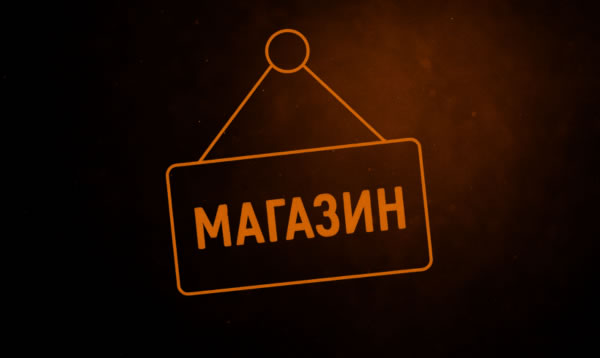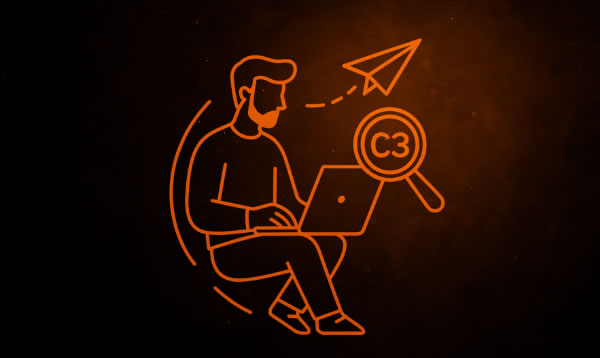30.04.2021
Legal alerts
Legal alerts
Foreign Companies Are Obliged to Provide Information about Their Members.

Federal Law No. 100-FZ of 20.04.2021 "On Amendments to Parts One and Two of the Tax Code of the Russian Federation" has been adopted.
The amendments simplify the procedure for obtaining property tax deductions for expenses on the purchase of housing and the repayment of interest on special-purpose loans (credits), as well as investment deductions for transactions recorded in an individual investment account.
The new procedure implies contactless interaction with the tax authorities through the "Taxpayer's Personal Account for Individuals" and automated verification of the taxpayer's right to receive the corresponding deduction.
The law establishes the liability of the tax agent and the bank for submitting false information under the procedure for obtaining tax deductions by taxpayers. The amount of the fine may be up to 20% of the amount of the tax returned by the tax authority to the taxpayer.
In accordance with the adopted law, foreign companies and unincorporated foreign structures will be required to provide the tax authorities with information about their members (founders, beneficiaries, managers).
The information generated as of December 31 must be submitted no later than March 28 to the tax authority at the place of registration.
This obligation will not apply to foreign organizations that are registered with the tax authority only on the basis of their provision of services in electronic form when they are sold within the Russian Federation.
At the same time, liability for failure to submit the specified information to the tax authority is introduced.
The law will enter into force on January 1, 2022, with the exception of certain provisions for which a different period is established. The Law also provides for the specifics of the application of the provisions establishing a new procedure for granting tax deductions.
The amendments simplify the procedure for obtaining property tax deductions for expenses on the purchase of housing and the repayment of interest on special-purpose loans (credits), as well as investment deductions for transactions recorded in an individual investment account.
The new procedure implies contactless interaction with the tax authorities through the "Taxpayer's Personal Account for Individuals" and automated verification of the taxpayer's right to receive the corresponding deduction.
The law establishes the liability of the tax agent and the bank for submitting false information under the procedure for obtaining tax deductions by taxpayers. The amount of the fine may be up to 20% of the amount of the tax returned by the tax authority to the taxpayer.
In accordance with the adopted law, foreign companies and unincorporated foreign structures will be required to provide the tax authorities with information about their members (founders, beneficiaries, managers).
The information generated as of December 31 must be submitted no later than March 28 to the tax authority at the place of registration.
This obligation will not apply to foreign organizations that are registered with the tax authority only on the basis of their provision of services in electronic form when they are sold within the Russian Federation.
At the same time, liability for failure to submit the specified information to the tax authority is introduced.
The law will enter into force on January 1, 2022, with the exception of certain provisions for which a different period is established. The Law also provides for the specifics of the application of the provisions establishing a new procedure for granting tax deductions.
Single Tax Payment May Soon Be Imposed on Legal Entities and Individual Entrepreneurs.

A bill on the introduction of the so-called Single Tax Payment (STP) is being considered by the State Duma of the Russian Federation on the first reading.
STP means a voluntary transfer of funds to a certain account under the Budget Classification Code (KBK) of the tax authority as an advance payment for the payment of taxes, fees, fines, and penalties. The tax authority will write off these funds at its sole discretion, according to a certain priority rule. It will not be possible to return funds from this account.
The Federal Tax Service has long been talking about the introduction of such a possibility. Since the beginning of 2019, the mechanism has been tested on individuals (the payment of personal income tax was introduced from 2020), now it will apply to companies too.
However, all this raises some not unfounded concerns. The procedure is much easier for individuals because they still have fewer taxes than organizations and individual entrepreneurs.
For example, companies can also act as tax agents, among other things. Does it mean that the tax authorities will write off personal income tax charged to employees from the STP as well? This somewhat violates the principle of paying this tax, which is withheld from employees' compensation.
Another disadvantage of the STP, which can scare off companies, is that the money deposited to the STP will be used to repay the debt in the first place. It is clear that the debts will still have to be paid, but what if, for example, an individual entrepreneur is unable to repay the VAT debt at the moment but is ready to pay salary taxes and contributions so that employees are not infringed on their rights? The entrepreneur might expect payment for the completed work which will allow them to pay off the debt. But they do not plan to accumulate debts on other taxes. However, the amounts will be offset automatically.
The authorities promise to inform you about the offset of funds, otherwise, there may be a surprise: you are sure that you have money to pay taxes, but in reality, there is no money. As a result, you get the delay, the debt again, penalties, and fines.
It is interesting that only after the payment of the debt and all the necessary current payments, the money will be used to pay penalties, interest, and fines. And if this is a penalty on the debt that has been paid first, will the penalties be charged further in this case? Or will penalties be charged on penalties?
Or let’s suppose an organization has old unpaid penalties and fines. For example, it has not conducted any activities for a long time, and now it's time to put things in order. In theory, they should be discharged after three years, but what if they have not been discharged, will the money also be used for their repayment?
Entrepreneurs have yet to deal with all this, and if the amendments are adopted, the new rules will take effect from January 1 next year.
STP means a voluntary transfer of funds to a certain account under the Budget Classification Code (KBK) of the tax authority as an advance payment for the payment of taxes, fees, fines, and penalties. The tax authority will write off these funds at its sole discretion, according to a certain priority rule. It will not be possible to return funds from this account.
The Federal Tax Service has long been talking about the introduction of such a possibility. Since the beginning of 2019, the mechanism has been tested on individuals (the payment of personal income tax was introduced from 2020), now it will apply to companies too.
However, all this raises some not unfounded concerns. The procedure is much easier for individuals because they still have fewer taxes than organizations and individual entrepreneurs.
For example, companies can also act as tax agents, among other things. Does it mean that the tax authorities will write off personal income tax charged to employees from the STP as well? This somewhat violates the principle of paying this tax, which is withheld from employees' compensation.
Another disadvantage of the STP, which can scare off companies, is that the money deposited to the STP will be used to repay the debt in the first place. It is clear that the debts will still have to be paid, but what if, for example, an individual entrepreneur is unable to repay the VAT debt at the moment but is ready to pay salary taxes and contributions so that employees are not infringed on their rights? The entrepreneur might expect payment for the completed work which will allow them to pay off the debt. But they do not plan to accumulate debts on other taxes. However, the amounts will be offset automatically.
The authorities promise to inform you about the offset of funds, otherwise, there may be a surprise: you are sure that you have money to pay taxes, but in reality, there is no money. As a result, you get the delay, the debt again, penalties, and fines.
It is interesting that only after the payment of the debt and all the necessary current payments, the money will be used to pay penalties, interest, and fines. And if this is a penalty on the debt that has been paid first, will the penalties be charged further in this case? Or will penalties be charged on penalties?
Or let’s suppose an organization has old unpaid penalties and fines. For example, it has not conducted any activities for a long time, and now it's time to put things in order. In theory, they should be discharged after three years, but what if they have not been discharged, will the money also be used for their repayment?
Entrepreneurs have yet to deal with all this, and if the amendments are adopted, the new rules will take effect from January 1 next year.
Denunciation of the Tax Treaty with the Netherlands.

Russian Prime Minister Mikhail Mishustin has signed a decree approving the draft law on the denunciation of the treaty between Russia and the Netherlands on the avoidance of double taxation.
The Ministry of Finance announced the beginning of drafting this bill in December last year. The Russian authorities wish to impose a 15% tax on income in the form of dividends transferred to accounts abroad. This requires a revision of tax treaties with other countries, which Malta, Cyprus, and Luxembourg have already agreed to. However, the Netherlands is against it. Most likely, we will see the adoption of these changes.
International corporate structures should be ready for higher taxes at source in the Russian Federation.
The Ministry of Finance announced the beginning of drafting this bill in December last year. The Russian authorities wish to impose a 15% tax on income in the form of dividends transferred to accounts abroad. This requires a revision of tax treaties with other countries, which Malta, Cyprus, and Luxembourg have already agreed to. However, the Netherlands is against it. Most likely, we will see the adoption of these changes.
International corporate structures should be ready for higher taxes at source in the Russian Federation.
Information about the Legal Entity's Name in the Unified State Register of Legal Entities Will Change Automatically.

Registration of a change in the name of an organization now entails automatic updating of its information in the Unified State Register of Legal Entities.
Due to the entry into force of amendments to Federal Law No. 129-FZ of 08.08.2001, the information on the renaming of a legal entity will change automatically in the Unified State Register of Legal Entities. Moreover, the records of such an organization as a member or a founder of another legal entity, a holder of the register of shareholders, or a management company will be amended accordingly.
This new development will save companies from the need to monitor these changes. Companies in which a renamed legal entity is listed as a member of the management organization or the holder of the register of shareholders, no longer need to keep such changes under control in order to apply for their registration in their Unified State Register of Legal Entities in a timely manner.
Sick Pays May Be Exempt from Personal Income Tax.

It is proposed to exempt all state benefits from personal income tax without exception.
A bill has been submitted to the State Duma of the Russian Federation that will remove part of the personal income tax burden from employers. We are talking about amendments to cancel the payment of personal income tax from temporary disability benefits.
At the moment, state benefits, with the exception of temporary disability benefits, are exempt from personal income tax. Paragraph 1, Article 217, Part Two of the Tax Code of the Russian Federation provides for a benefit, but legislators believe that such a condition is unfair. After all, no personal income tax is charged from the state unemployment benefit paid to a healthy person who may also have healthy family members. Therefore, a draft has been developed, where it is proposed to remove the exception clause and make all the state benefits exempt from personal income tax; in this case, all taxpayers will be equal in rights, and discrimination — the imposition of the obligation to pay personal income tax for benefits in connection with caring for a sick child or illness — will be eliminated.
If the amendments are adopted, then from 2022, employers will not have to calculate and pay the agent's personal income tax from temporary disability benefits to the budget.
A bill has been submitted to the State Duma of the Russian Federation that will remove part of the personal income tax burden from employers. We are talking about amendments to cancel the payment of personal income tax from temporary disability benefits.
At the moment, state benefits, with the exception of temporary disability benefits, are exempt from personal income tax. Paragraph 1, Article 217, Part Two of the Tax Code of the Russian Federation provides for a benefit, but legislators believe that such a condition is unfair. After all, no personal income tax is charged from the state unemployment benefit paid to a healthy person who may also have healthy family members. Therefore, a draft has been developed, where it is proposed to remove the exception clause and make all the state benefits exempt from personal income tax; in this case, all taxpayers will be equal in rights, and discrimination — the imposition of the obligation to pay personal income tax for benefits in connection with caring for a sick child or illness — will be eliminated.
If the amendments are adopted, then from 2022, employers will not have to calculate and pay the agent's personal income tax from temporary disability benefits to the budget.
The Term for Claiming for Non-Pecuniary Damage Has Been Stipulated in the Labor Code of the Russian Federation.

Law No. 74-FZ of 05.04.21 on the period of time for applying to the court for non-pecuniary damage by an employee whose labor rights have been violated has been published.
Amendments were made to Articles 391 and 392 of the Labor Code of the Russian Federation. The law stipulates that if there is a dispute about compensation for non-pecuniary damage to an employee, this issue can be appealed to the court simultaneously with the claim on the restoration of the violated labor rights or within three months after the entry into force of the court decision that has restored these rights.
It refers to the situations where a claim for non-pecuniary damage is filed after the entry into force of a court decision restoring the violated labor rights of an employee. Previously, no such term was clearly stipulated, and there was a legal conflict.
The Ministry of Labor Informs about the Recording and Payment of Non-Work Days in May 2021.

The Ministry of Labor has issued recommendations that can guide employees, HR managers, and accountants when recording and paying for "public holidays" in May1.
In order to reduce the spread of the new coronavirus infection (COVID-19), the Decree of the President of the Russian Federation declared the days from May 4 to May 7, 2021 as non-working days with the preservation of wages for employees. The Russians will have holidays for 10 days: from 1st to 10th of May inclusive, in connection with the celebration of Victory Day and the Spring and Labor Day. The Ministry of Labor has issued recommendations for employees and employers on how and when to pay salaries to employees in connection with May's non-working days and not just that.
About going to work: who needs to rest and who needs to work?
The employer should determine the number of employees and workers who have to work during the holidays in order to ensure the functioning of the organization or authority.
About the April salary: when to pay?
If the payday falls on a weekend or a non-working public holiday, the wages should be transferred to the employees on the day before. But from a legal point of view, current May's non-working days from May 4 to May 7 do not qualify as a weekend or a non-working public holiday. Therefore, there is no reason to shift the period of paying the wages. At the same time, it should be noted that banks may not work on these days. And if the majority of employees will have a rest from May 4 to May 7, then it makes sense, according to the Ministry of Labor, to pay the salary on April 30. But on whatever holiday day the employer pays the salary, the personal income tax from the salary should be paid no later than May 11.
About the May salary: how much to charge?
For those who will work during the holidays, the salary should be charged at a single rate. During non-working days, compensation for work should be paid at the usual, not increased rate. At the same time, the employer has the right to establish additional payments.
For those who will rest during the holidays, the salary shall be calculated according to the employment contract. That is, non-working days from May 4 to May 7 should not be a reason for reducing the salary of employees. The salary will be as if the employees have fully worked their non-working days.
About vacation leave during non-working days: will it be extended or not?
The duration of the leave during the non-working days established by the President's Decree is not extended. Therefore, the holidays do not affect the end date of the vacation leave.
About the timesheet from May 4 to May 7: which code to use?
In the timesheet from May 4 to May 7, you can use the code that the employer will develop on its own (paragraph 3 of the recommendations).
In order to reduce the spread of the new coronavirus infection (COVID-19), the Decree of the President of the Russian Federation declared the days from May 4 to May 7, 2021 as non-working days with the preservation of wages for employees. The Russians will have holidays for 10 days: from 1st to 10th of May inclusive, in connection with the celebration of Victory Day and the Spring and Labor Day. The Ministry of Labor has issued recommendations for employees and employers on how and when to pay salaries to employees in connection with May's non-working days and not just that.
About going to work: who needs to rest and who needs to work?
The employer should determine the number of employees and workers who have to work during the holidays in order to ensure the functioning of the organization or authority.
About the April salary: when to pay?
If the payday falls on a weekend or a non-working public holiday, the wages should be transferred to the employees on the day before. But from a legal point of view, current May's non-working days from May 4 to May 7 do not qualify as a weekend or a non-working public holiday. Therefore, there is no reason to shift the period of paying the wages. At the same time, it should be noted that banks may not work on these days. And if the majority of employees will have a rest from May 4 to May 7, then it makes sense, according to the Ministry of Labor, to pay the salary on April 30. But on whatever holiday day the employer pays the salary, the personal income tax from the salary should be paid no later than May 11.
About the May salary: how much to charge?
For those who will work during the holidays, the salary should be charged at a single rate. During non-working days, compensation for work should be paid at the usual, not increased rate. At the same time, the employer has the right to establish additional payments.
For those who will rest during the holidays, the salary shall be calculated according to the employment contract. That is, non-working days from May 4 to May 7 should not be a reason for reducing the salary of employees. The salary will be as if the employees have fully worked their non-working days.
About vacation leave during non-working days: will it be extended or not?
The duration of the leave during the non-working days established by the President's Decree is not extended. Therefore, the holidays do not affect the end date of the vacation leave.
About the timesheet from May 4 to May 7: which code to use?
In the timesheet from May 4 to May 7, you can use the code that the employer will develop on its own (paragraph 3 of the recommendations).
____________________________________
1 Информация Минтруда России
Inclusion of Employees to Be Dismissed in the Leave Schedule.

Rostrud (Federal Service for Labor and Employment) has informed1 whether it is necessary to include employees who are on vacation with subsequent dismissal in the leave schedule.
The leave schedule should include all employees who are in an employment relationship with the employer on the day of approval of the schedule. Such employees also include those who are on vacation with subsequent dismissal. This conclusion is contained in the explanations of the labor agency.
In addition, the agency explains: if an employee is dismissed before the end of the working year for which he/she has already received an annual paid leave, the employer will have the right to deduct the sum of unearned days of leave from the employee's salary to settle the employee's debt to the employer (Article 137 of the Labor Code of the Russian Federation).
We monitor changes in the legislation on a daily basis and provide our clients with proven solutions to the issues within the legal framework of the Russian Federation.
Should you have any questions or need any clarification, please do not hesitate to contact us.
____________________________________
1 FEDERAL SERVICE FOR LABOR AND EMPLOYMENT
LETTER No. PG/03709-6-1 of March 9, 2021



